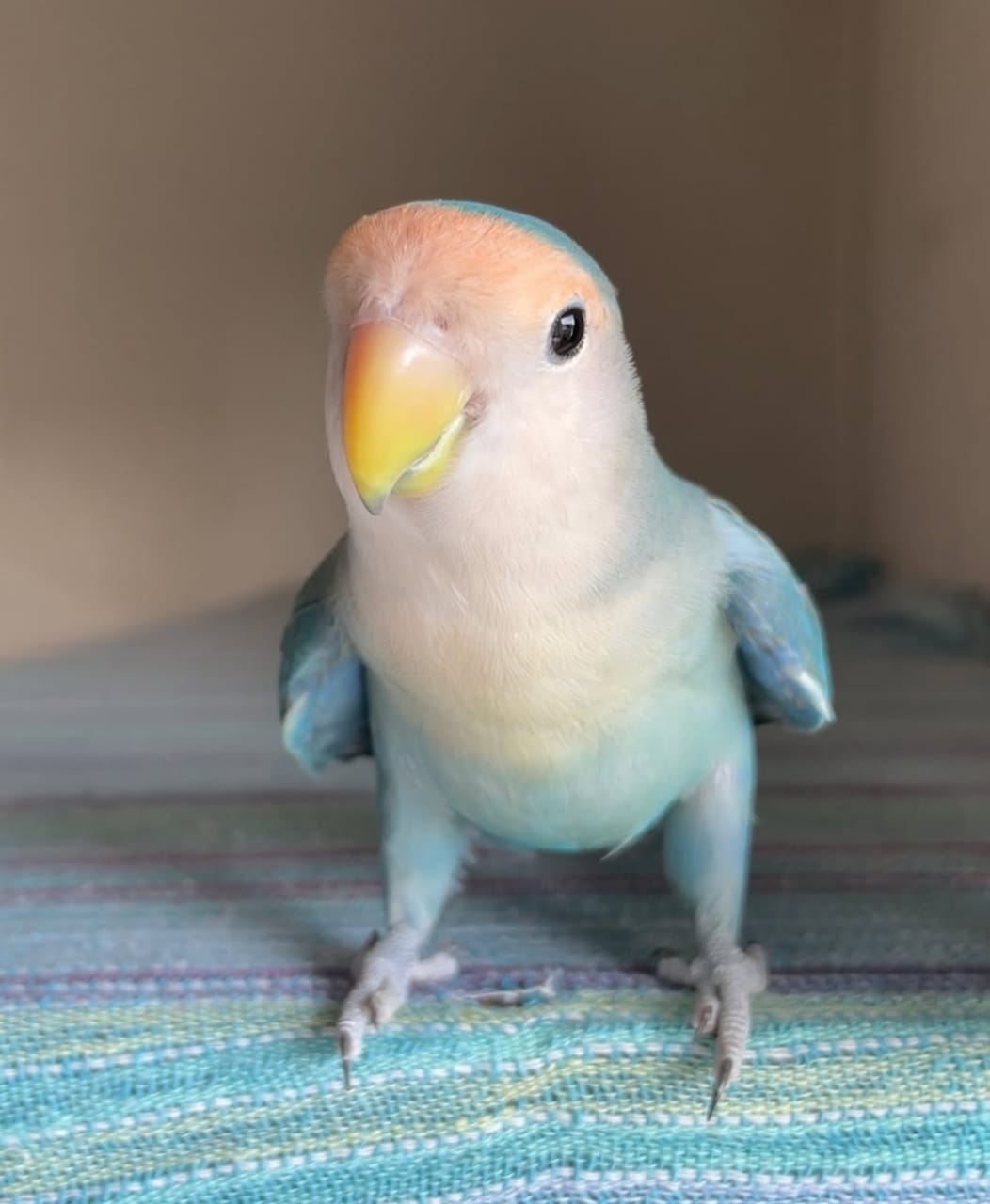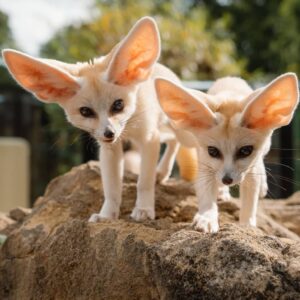Description
Discover the Lovebird: A Charming and Social Exotic Pet
The lovebird is a small, vibrant, and affectionate parrot that makes a wonderful companion for bird enthusiasts. Known for their playful personalities and strong pair bonds, these colorful birds are a popular choice for those looking to adopt an exotic pet. At ExoticPetsCare.com, we’re here to guide you through everything you need to know about lovebirds, from their care requirements to their unique behaviors. If you’re considering adopting one, read on to learn why these feathered friends might be the perfect addition to your home. More
Introduction to Lovebirds
Lovebirds (Agapornis) are small parrots native to Africa. They are named for their strong pair bonds and affectionate nature, often seen cuddling and preening their mates. There are nine species of lovebirds, with the Peach-faced, Fischer’s, and Masked varieties being the most common in captivity. These birds are known for their bright plumage, energetic personalities, and ability to form deep bonds with their owners.
Physical Characteristics
These birds are small but striking, with:
- Size: They typically measure 5-7 inches in length and weigh between 40-60 grams.
- Coloration: Their feathers come in a variety of vibrant colors, including green, blue, yellow, and orange, depending on the species and mutation.
- Lifespan: With proper care, they can live for 10-15 years or even longer.
Behavior and Temperament
Lovebirds are social, intelligent, and highly active birds. They thrive on interaction and can form strong bonds with their owners. However, they can also be territorial and may become nippy if not properly socialized. These birds are known for their playful nature and love of toys, climbing, and exploring their environment.
10 Essential Care Tips for Lovebirds
1. Spacious Housing
- A spacious cage is essential. The minimum size should be 24x24x24 inches, with bar spacing no wider than ½ inch to prevent escape.
- Include a variety of perches, swings, and toys to keep your bird mentally stimulated and physically active.
2. Balanced Diet
- Provide a diet of high-quality pellet food, fresh fruits, and vegetables. Seeds can be offered as a treat but should not make up the majority of their diet.
- Fresh water should be provided daily, and food dishes should be cleaned regularly.
3. Social Interaction
- These birds are highly social and require daily interaction with their owners or a companion bird. If kept alone, they need plenty of attention to prevent loneliness and behavioral issues.
4. Exercise and Enrichment
- Allow your bird out-of-cage time daily to fly and explore in a safe, supervised environment.
- Provide toys, puzzles, and foraging opportunities to keep them entertained and engaged.
5. Grooming
- Regularly check their feathers, nails, and beak to ensure they remain in good condition.
6. Veterinary Care
- Schedule regular check-ups with an avian veterinarian to ensure their health and well-being.
7. Environmental Enrichment
- Create a stimulating environment with climbing structures, foraging toys, and safe outdoor exposure (if possible).
8. Noise Management
- Be prepared for their vocalizations and provide a quiet, stress-free environment.
9. Companionship
- If you adopt a pair, ensure they are compatible and have enough space to coexist peacefully.
10. Long-Term Commitment
- Remember, these birds can live for several decades, so ensure you’re ready for a lifelong commitment.
Legal Considerations
Lovebirds are legal to own in most areas, but it’s always a good idea to check local regulations before adopting. Additionally, ensure that your bird is sourced from a reputable breeder or rescue organization to support ethical practices.
Why Adopt a Lovebird?
These birds are perfect for those seeking a small, affectionate, and interactive pet. Their vibrant colors, playful antics, and ability to form strong bonds make them a joy to have around. However, they require time, attention, and proper care to thrive, so they are best suited for dedicated bird lovers.
Interesting Facts
- They are known for their monogamous behavior and often mate for life.
- They are excellent climbers and use their beaks to help them navigate their environment.
- These birds can learn to mimic sounds and words, though they are not as vocal as larger parrots.
- In the wild, they live in flocks and are highly social with their own kind.
Conclusion
Lovebirds are delightful and engaging pets that bring color and joy to any home. If you’re ready to provide the love, care, and attention they need, a lovebird can be a wonderful companion for years to come. At ExoticPetsCare.com, we’re here to help you every step of the way. Contact us today to learn more about adopting or to explore other exotic pet options.







Reviews
There are no reviews yet.